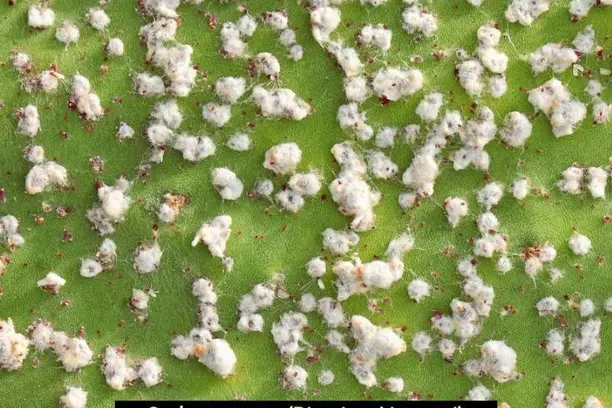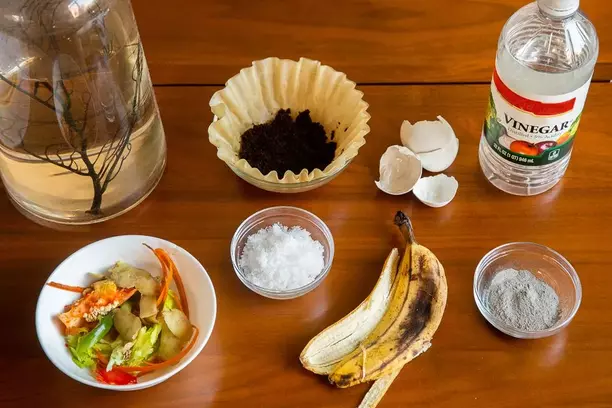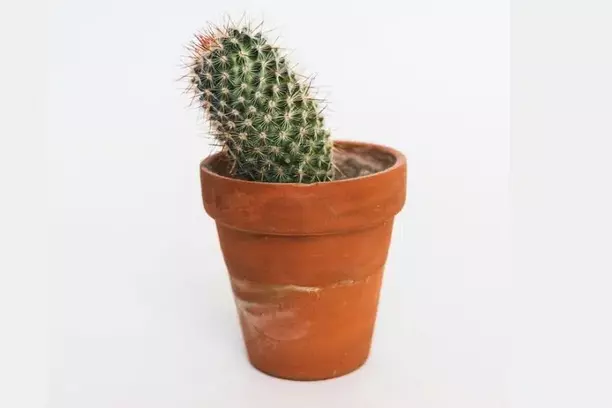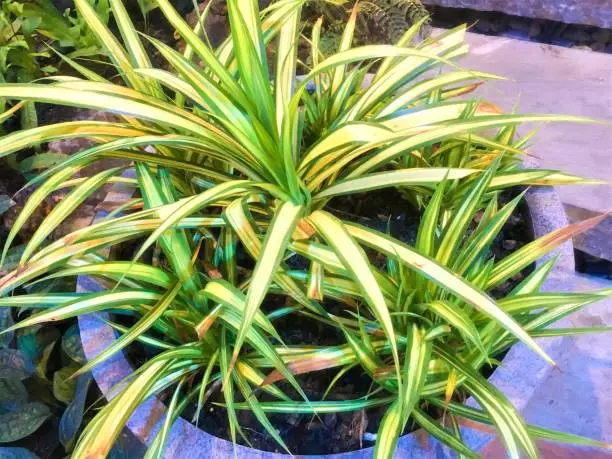Tea bags are a staple in many households, with millions of people worldwide enjoying a cup of tea each day. However, many tea drinkers are unaware of the environmental impact of their tea habits. The question of whether tea bags are compostable or biodegradable is an important one, as it can have a significant impact on the environment.
Composting is a great way to reduce waste and create nutrient-rich soil. However, not all materials are suitable for composting, and it’s important to know which ones are. Tea bags are a common item that people wonder about when it comes to composting. While some tea bags are compostable, others are not, and it’s important to know the difference. Additionally, even compostable tea bags may contain plastic, which can take years to break down in the compost pile.
Understanding Composting
Composting is the process of breaking down organic material into a nutrient-rich soil amendment. It’s a great way to reduce waste and improve the health of your garden or plants. In order to compost effectively, it’s important to understand the basic principles of composting.
The Compost Bin
The first step in composting is to choose a compost bin. There are many different types of compost bins available, from simple DIY designs to more complex commercial models. It’s important to choose a bin that is appropriate for your needs and the amount of organic material you will be composting.
Organic Material
The key to successful composting is to add the right mix of organic material. This includes both “green” and “brown” materials. Green materials are high in nitrogen and include things like food waste and grass clippings. Brown materials are high in carbon and include things like leaves and wood chips.
Nitrogen and Carbon
The ideal ratio of nitrogen to carbon in your compost pile is 1:2. This means that for every one part of green material you add, you should add two parts of brown material. This balance is important because it helps to create the right conditions for composting.
Moisture
Moisture is also important for composting. Your compost pile should be moist, but not too wet. If it’s too wet, it can become anaerobic and start to smell. If it’s too dry, it won’t break down properly. A good rule of thumb is to keep your compost pile as moist as a wrung-out sponge.
Food Waste
Food waste is a great addition to your compost pile because it’s high in nitrogen. However, it’s important to remember that not all food waste is created equal. Meat, dairy, and oily foods should be avoided because they can attract pests and slow down the composting process.
In conclusion, composting is a great way to reduce waste and improve the health of your garden or plants. By understanding the basic principles of composting, you can create a nutrient-rich soil amendment that will benefit your plants and the environment.
Tea Bags and Biodegradability
Tea bags are a common household item that many people use on a daily basis. However, the question remains: can you compost tea bags? The answer is not a simple yes or no, as it depends on the type of tea bag.
Many tea bags are made from a blend of paper, plastic, and other materials, making them non-biodegradable. These tea bags cannot be composted and should be thrown away in the trash. However, there are tea bags that are made from biodegradable materials, such as plant-based cellulose fibers, and are plastic-free. These biodegradable tea bags can be composted in a home composting system or a commercial composting facility.
It is important to note that not all tea bags that claim to be biodegradable are actually compostable. Some tea bags may be labeled as “biodegradable” but may not break down completely in a composting environment. Therefore, it is important to look for tea bags that are labeled as “compostable” and have been certified by a third-party organization, such as the Biodegradable Products Institute (BPI) or the Composting Council.
When composting tea bags, it is recommended to remove any staples or strings attached to the tea bags before adding them to the compost pile. This will help ensure that the tea bags break down quickly and efficiently. Additionally, it is important to make sure that the compost pile is kept moist and aerated to promote the breakdown of the tea bags.
In conclusion, if you are looking to compost tea bags, it is important to choose tea bags that are made from biodegradable and compostable materials. By doing so, you can help reduce the amount of waste that ends up in landfills and promote a more sustainable way of living.
Impact of Plastic in Tea Bags
Tea bags are a popular way to brew tea, but what happens to them after they are used? Can they be composted? The answer is not straightforward, as it depends on the type of tea bag you are using.
Many tea bags contain plastic, specifically polypropylene, to help seal the bag and prevent it from falling apart in hot water. This plastic is not biodegradable and can take hundreds of years to break down. When tea bags containing plastic are composted, they can release microplastics into the soil, which can have negative impacts on the environment.
However, some tea bags are made from plant-based plastic, such as polylactic acid (PLA). These tea bags are biodegradable and can be composted in a home composting system. It is important to note that not all plant-based plastics are created equal, and some may still release microplastics into the soil.
In addition to the impact on the environment, the use of plastic in tea bags can also have implications for human health. When plastic is heated, it can release harmful chemicals into the tea. While the amount of chemicals released may be small, it is still a cause for concern.
Overall, the use of plastic in tea bags has a negative impact on the environment and potentially on human health. When possible, it is best to choose tea bags made from biodegradable materials and avoid those containing plastic.
Tea Brands and Their Compostability
When it comes to composting tea bags, not all brands are created equal. While some tea bags are made from biodegradable materials that are safe for composting, others are not. In this section, we will take a closer look at some of the most popular tea brands and their compostability.
Biodegradable Tea Bags
Many tea brands have started to move away from traditional paper tea bags and towards biodegradable alternatives. These tea bags are typically made from materials like cornstarch, plant-based fibers, or hemp. Brands that offer biodegradable tea bags include:
- Clipper
- Pukka Tea
- Teatulia
- Higher Living Teas
- Nature’s Cuppa Organic
- Hampstead Tea
- Akbar
- Eteaket
- Harney & Sons
- Red Diamond
- Salada
If you are composting tea bags, it is always best to check the packaging to see if they are labeled as biodegradable. This will ensure that they break down properly in your compost pile.
Non-Biodegradable Tea Bags
Unfortunately, not all tea bags are safe for composting. Some tea bags are made from materials like nylon or polypropylene, which do not break down in the composting process. Brands that use non-biodegradable tea bags include:
- Lipton
- PG Tips
- Twining’s
- Tetley
- Yorkshire Tea
- Bigelow
- Tazo
- Republic of Tea
- Celestial Seasonings
- Yogi Tea
- Lyons
If you are unsure whether your tea bags are biodegradable or not, it is best to err on the side of caution and dispose of them in the trash.
Store Brands
Many grocery stores offer their own brand of tea bags. These brands can vary widely in terms of their compostability. Some store brands, like Aldi’s own-brand tea bags, are biodegradable and safe for composting. Others, like Waitrose’s own-brand caffeinated bags, are not.
Specialty Tea Brands
Specialty tea brands like Dilmah Organic and Teavana also offer their own tea bags. While these brands may use high-quality ingredients, it is important to check the packaging to see if their tea bags are biodegradable before composting them.
In conclusion, composting tea bags can be a great way to reduce waste and add nutrients to your garden soil. However, it is important to choose brands that use biodegradable materials in their tea bags to ensure that they break down properly.
Composting Tea Bags and Gardening
Tea bags are a common household item that can be easily composted. Most tea bags are made from natural materials like paper, which makes them biodegradable. Composting tea bags is a great way to reduce waste and create nutrient-rich soil for your garden.
When composting tea bags, it is important to remove any staples or plastic tags first. These materials are not biodegradable and can contaminate your compost. Once you have removed any non-biodegradable materials, you can simply add the tea bags to your compost pile.
Composting tea bags can benefit your garden in many ways. The nutrients from the tea leaves can provide a natural source of fertilizer for your plants. Tea bags can also help to improve soil structure and retain moisture, which can be especially beneficial for growing vegetables.
In addition to composting tea bags, you can also use them directly in your garden. Simply bury used tea bags in the soil around your plants. This can help to improve soil quality and provide nutrients to your plants as the tea bags decompose.
Overall, composting tea bags is an easy and eco-friendly way to reduce waste and improve soil quality in your garden. By incorporating tea bags into your compost pile or directly into your garden, you can create a more sustainable and nutrient-rich growing environment for your plants.
Loose Tea: An Alternative
When it comes to composting, many people wonder if tea bags are compostable. While some tea bags are biodegradable, others are not. The good news is that loose tea is a great alternative to tea bags and is perfect for composting.
Loose tea is made up of loose tea leaves, which are typically sold in bulk or in reusable containers. Since there is no bag or string, loose tea leaves are completely compostable. They are also a great source of nitrogen, which is essential for healthy compost.
To compost loose tea, simply add it to your compost bin or pile. You can also mix it with other compostable materials, such as food scraps, leaves, and grass clippings. Be sure to mix the materials well to ensure proper decomposition.
In addition to being great for composting, loose tea has several other benefits. For one, it is often higher quality than tea bags, as it is made up of whole tea leaves rather than broken pieces. It also allows for more customization, as you can mix and match different types of tea to create your perfect blend.
Overall, loose tea is a great alternative to tea bags when it comes to composting. It is completely compostable and provides essential nutrients to your compost. Plus, it has several other benefits, such as higher quality and customization options. So, next time you’re brewing a cup of tea, consider making the switch to loose tea for a more sustainable option.
The Role of Manufacturers
When it comes to composting tea bags, the role of manufacturers is crucial. Some tea bags are made from biodegradable materials, while others are not. It is important to check the packaging or manufacturer’s website to determine if your tea bags are compostable.
Many manufacturers have started to produce tea bags made from biodegradable materials such as plant-based fibers or paper. For example, companies like Abel & Cole, Brew Tea Co, Numi Tea, Stash Tea, and We Are Tea all offer biodegradable tea bags.
On the other hand, some manufacturers still use non-biodegradable materials such as nylon or polypropylene in their tea bags. For example, Luzianne, Bushells, and Lidl all use non-biodegradable materials in their tea bags.
It is worth noting that even if a tea bag is labeled as biodegradable, it may not be suitable for home composting. Some biodegradable tea bags require industrial composting facilities to break down properly. Waitrose Duchy and Taylors of Harrogate, for example, offer tea bags that are biodegradable but not suitable for home composting.
In conclusion, the role of manufacturers is important when it comes to composting tea bags. It is essential to check the packaging or manufacturer’s website to determine if your tea bags are biodegradable and suitable for home composting.
Recycling and Composting Tea Bags
When it comes to tea bags, the question of whether or not they can be composted or recycled is a common one. The answer is that it depends on the type of tea bag you are using.
If your tea bag is made from paper, it can generally be composted along with your other food scraps and organic waste. However, if the tea bag has a metal staple or other non-compostable components, it should be removed and disposed of separately.
If you are unsure whether your tea bag is compostable, check the packaging or contact the manufacturer for more information. Some tea bags are specifically marketed as compostable and will break down completely in a compost pile or bin.
If you are looking to recycle your tea bags, it is important to note that not all types of tea bags can be recycled. Tea bags with metal staples, for example, should be removed and disposed of separately. However, some tea bags that are made from biodegradable or compostable materials may be able to be recycled along with other paper products.
To maintain the integrity of your compost pile or bin, it is important to only compost materials that are safe and appropriate for the environment. This means avoiding composting materials that may contain harmful chemicals or toxins, such as some types of tea bags that are made with synthetic materials.
Overall, whether or not you can compost or recycle your tea bags will depend on the specific type of tea bag you are using. By checking the packaging or contacting the manufacturer, you can ensure that you are disposing of your tea bags in a way that is safe and environmentally friendly.
The Importance of Organic Tea Bags
Organic tea bags are becoming increasingly popular among tea drinkers due to their numerous benefits. Not only do they provide a delicious and healthy beverage, but they also have a lower environmental impact compared to traditional tea bags.
One of the main advantages of organic tea bags is that they are made from natural, biodegradable materials such as hemp or cotton. This means that they can be composted along with other organic materials, reducing waste and promoting sustainability.
In addition, organic tea bags are often free from harmful pesticides and chemicals, making them a healthier choice for both the consumer and the environment. By choosing organic tea bags, we can support sustainable and responsible farming practices, which help to protect our planet’s natural resources.
It’s important to note that not all tea bags are created equal. Some non-organic tea bags may contain synthetic materials that are not biodegradable, which can have a negative impact on the environment. By choosing organic tea bags, we can ensure that we are making a responsible and sustainable choice.
Overall, organic tea bags are a great choice for those who are looking for a more sustainable and environmentally friendly option. By composting them along with other organic materials, we can help to reduce waste and promote a healthier planet for future generations.
Frequently Asked Questions
Can tea bags be composted?
Yes, tea bags can be composted. However, not all tea bags are compostable, so it’s important to check the packaging or contact the manufacturer to make sure.
Are tea bags biodegradable?
Many tea bags are biodegradable, but not all of them. Some tea bags are made with materials that do not break down easily in compost, such as nylon or polypropylene. It’s important to check the packaging or contact the manufacturer to make sure.
What types of tea bags are compostable?
Tea bags made from natural materials such as paper, cotton, or silk are usually compostable. Some tea bags are also labeled as “compostable” or “biodegradable” on the packaging.
How long does it take for tea bags to break down in compost?
The time it takes for tea bags to break down in compost can vary depending on the type of tea bag and the conditions in the compost pile. Generally, it can take several weeks to several months for tea bags to fully break down.
Can you compost tea bags with staples?
Tea bags with staples can be composted, but it’s best to remove the staples before adding the tea bags to the compost pile. Staples can take longer to break down than the tea bags themselves.
Which tea bags are not compostable?
Tea bags made with nylon or polypropylene are not compostable. Tea bags that are coated with plastic or have plastic parts, such as the string or tag, are also not compostable. It’s important to check the packaging or contact the manufacturer to make sure.



